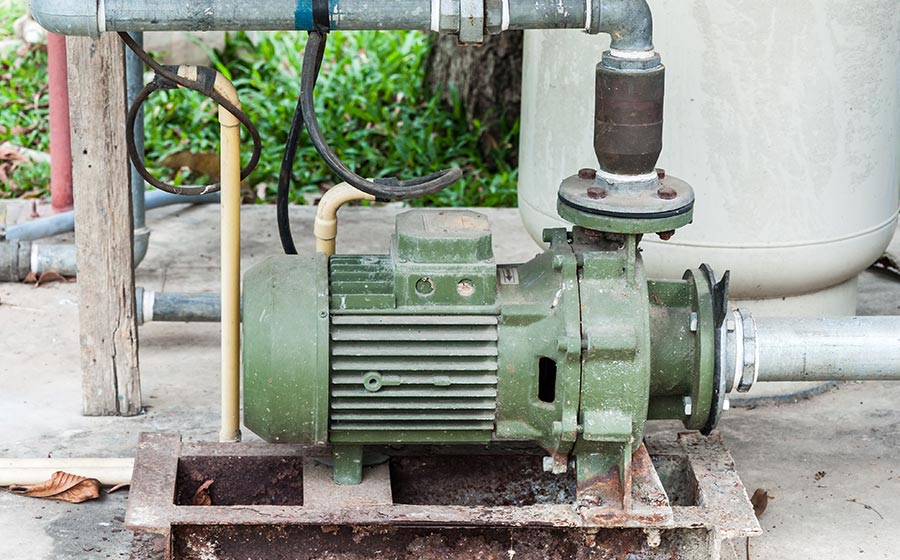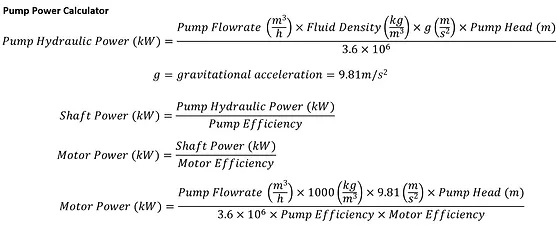Unleash the Potential of Pump Power Calculators with Linquip’s Expert Resources


(adsbygoogle = window.adsbygoogle || []).push({});
Table of Contents
Introduction to Pump Power Calculators and Linquip
Pump power calculations play a crucial role in selecting, sizing, and optimizing pumps for various applications. In this article, we will provide a comprehensive guide on pump power calculators and their benefits. Furthermore, we will highlight how Linquip, a leading platform offering industry insights and expert advice, can help you master pump power calculations and other essential topics.
What is Pump Power?
Pump power refers to the amount of energy required to drive a pump and move fluids through a system. It is typically measured in kilowatts (kW) or horsepower (hp). Accurate pump power calculations are essential for determining the appropriate pump size, reducing energy consumption, and ensuring optimal system performance.
Importance of Accurate Pump Power Calculations
Accurate pump power calculations provide several benefits:
- Proper pump selection and sizing
- Energy efficiency and cost savings
- Enhanced system performance
- Reduced maintenance costs and downtime
- Compliance with industry standards and regulations
Factors Affecting Pump Power
Three primary factors influence pump power:
Flow Rate
The flow rate is the volume of fluid that a pump can move in a given period. It is typically measured in gallons per minute (GPM) or liters per second (L/s).
Pressure
Pressure refers to the force exerted by the fluid on the pump and the system. It is commonly measured in pounds per square inch (psi) or pascals (Pa).
Efficiency
Efficiency represents the percentage of input power that is converted into useful work by the pump. It is expressed as a decimal or percentage.
How to Use a Pump Power Calculator
Using a pump power calculator involves inputting the required data, such as flow rate, pressure, and efficiency. The calculator will then compute the pump power for you. Some calculators also provide additional features, such as unit conversions and pump curve generation.
Applications of Pump Power Calculators
Pump power calculators are widely used in various industries, including:
- Water and wastewater treatment
- HVAC systems
- Oil and gas
- Food and beverage processing
- Pharmaceuticals
- Agriculture and irrigation
Common Mistakes to Avoid When Using a Pump Power Calculator
To ensure accurate results when using a pump power calculator, avoid common mistakes such as:
- Inputting incorrect or incomplete data
- Neglecting to account for system losses and inefficiencies
- Relying solely on the calculator’s results without verifying them
- Ignoring the specific requirements and constraints of your application
Tips for Optimal Pump Power Calculation
Consider these tips for achieving optimal pump power calculation results:
- Verify the accuracy and completeness of your input data
- Consider the unique characteristics and requirements of your application
- Regularly review and update your calculations as system conditions change
- Consult with industry professionals and experts for guidance and insights
- Continuously learn and stay updated on industry trends, technologies, and best practices

Pump Power Calculator (Reference: buildingcalculators.com)
How Linquip Can Help You Master Pump Power Calculations
Linquip offers a wealth of resources and support to help you master pump power calculations and related topics. With Linquip, you can:
- Access a comprehensive library of articles, guides, and tutorials on pump power calculations and other essential topics
- Connect with industry professionals and experts to seek guidance, insights, and mentorship
- Leverage a growing community of like-minded individuals passionate about pumps, fluid dynamics, and innovation
- Stay informed about the latest trends, technologies, and opportunities in the pump industry
By utilizing Linquip’s platform, you can enhance your understanding of pump power calculations, make informed decisions, and optimize your pump systems.
| Topic | Information |
|---|---|
| Definition of Pump Power | The amount of energy required to drive a pump and move fluids through a system, is typically measured in kilowatts (kW) or horsepower (hp). |
| Purpose of Pump Power Calculator | Simplifies calculations, ensure proper pump selection and sizing, promotes energy efficiency, enhances system performance, and reduces maintenance costs. |
| Factors Affecting Pump Power | – Flow Rate<br>- Pressure<br>- Efficiency |
| How to Use a Pump Power Calculator | Input required data, such as flow rate, pressure, and efficiency, and the calculator computes the pump power. |
| Applications of Pump Power Calculators | – Water and wastewater treatment<br>- HVAC systems<br>- Oil and gas<br>- Food and beverage processing<br>- Pharmaceuticals<br>- Agriculture and irrigation |
| Common Mistakes to Avoid | – Inputting incorrect or incomplete data<br>- Neglecting system losses and inefficiencies<br>- Relying solely on calculator results<br>- Ignoring specific requirements of application |
| Tips for Optimal Pump Power Calculation | – Verify input data accuracy<br>- Consider application requirements<br>- Regularly review and update calculations<br>- Consult with industry professionals<br>- Continuously learn and stay updated |
| Benefits of Accurate Pump Power Calculations | – Proper pump selection and sizing<br>- Energy efficiency and cost savings<br>- Enhanced system performance<br>- Reduced maintenance costs and downtime<br>- Compliance with industry standards and regulations |
| Linquip’s Offerings | – Access to a knowledge base of articles, guides, and tutorials<br>- Connection with industry professionals and experts<br>- Networking within a growing community<br>- Stay informed about trends, technologies, and opportunities |
Conclusion
Pump power calculations are critical for ensuring optimal pump selection, sizing, and system performance. By understanding the factors affecting pump power and leveraging a pump power calculator, you can achieve energy efficiency, cost savings, and improved system reliability. With the support and resources provided by Linquip, you can master the intricacies of pump power calculations and stay at the forefront of industry trends and innovations.
Download PDF for Unleash the Potential of Pump Power Calculators
You can download the PDF format of this post from the link provided here.
Buy Equipment or Ask for a Service
By using Linquip RFQ Service, you can expect to receive quotations from various suppliers across multiple industries and regions.
Click Here to Request a Quotation From Suppliers and Service Providers
Read More On Linquip
- How Do I Choose The Right Generator For My Needs?
- How to Remove Ozone from Your Home? A Comprehensive Guide
- Why Do We Use AC Instead of DC? Exploring the Advantages of Alternating Current
- How To Quiet A Generator? (Comprehensive Guide)
- Single phase generators ; 5 essential steps to know single phase generators
- 3 phase generator: a brief review of everything you need to know
- Generator Maintenance: The Most Essential Tips to Know
- Types of Generators: Learn the Basics, Get the Most Out f it!
- Parts of Generator: 10 Main Component of Generators
- What Is a Generator? A Comprehensive Explanation of Working Principle, Types, and Components
- How Calculate The Fuel Consumption of Generator?
- How Do I Maintain The Battery of My Generator?
- How Long Can a Generator Run Continuously?
- Do Generators Work In A Flood? (What to Do If Your Generator Is Flooded?)
- Can A Home With Solar Panels Use A Generator?
- How To Store Your Generator Safely? (Clear Guide)
- Converting Your Generator To Propane: Step By Step (Clear Guide)
- What Are The Benefits of Generators?
- Mastering the Art of Calculating Transformation Efficiency: A Comprehensive Guide by Linquip
- How Do You Calculate Velocity? A Comprehensive Guide on Linquip Platform
- How To Clean Up Generator Power? (Clear Guide)
- Main Benefits of Generators for Disaster Response
- How to Use a Portable Generator During a Power Outage?
- Mastering Nuclear Equation Calculations with Linquip’s Expert Guidance
- Ultimate Guide to Ceiling Fan Size Calculator by Linquip
- In-Depth Guide to Inverter Battery Calculators on the Linquip Platform
- Optimize Your Pump System with Linquip’s Pump Flow Rate Calculator
